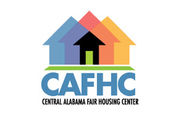Disabilities are protected by the Fair Housing Act, and laws extend to both physical and mental impairments. Here’s what you should know about mental illness and equal opportunity in housing.
The Fair Housing Act protects against a broad range of discriminatory actions, activities, and statements that might be taken to prevent a person from buying, renting, or leasing a home, loaning money for housing purposes, applying for a mortgage, etc.
All individuals and entities covered by the Fair Housing Act (such as landlords, real estate agents, and mortgage lenders) may not coerce, intimidate, threaten, or interfere with any individual’s rights to equal housing opportunities based on several characteristics, including a person’s race, color, sexual identity, familial status, and whether that person identifies as having a disability. Those disabilities which are protected prohibit housing professionals from discriminating against applicants or residents because of their disability or the disability of anyone associated with them and from treating persons with disabilities less (or more) favorably than others because of their disability.
But what exactly is a disability? Are we talking about a temporarily broken arm? Someone who is wheelchair-bound? Only those disabilities which are visible to the human eye? Or does the Fair Housing Act also include protections for individuals with mental and emotional disabilities – those that might be harder to identify or pinpoint? Following, we help you better understand your Fair Housing rights.
Disabilities and Fair Housing Protections
It is important to understand that there are several protections in place to guarantee individuals with both physical and mental disabilities the right to fair and equal housing opportunities. Disability discrimination (categorized as physical, mental, and/or emotional) is prohibited by the Fair Housing Act, Section 504 of the Rehabilitation Act of 1973, the Americans with Disabilities Act, and other federal, state, and local laws.
These laws require that those identifying with disabilities be provided the same housing opportunities that are provided to individuals without disabilities. Individuals entitled to these protections include those who have a physical or mental impairment that substantially limits one or more major life activities.
Mental Illnesses Protected by Law
Which mental illnesses are protected by these laws? Protected mental illnesses include — but are not limited to — mental health, psychological, intellectual, and developmental conditions such as organic brain syndrome, depression, anxiety, bipolar disorder, post-traumatic stress disorder (PTSD), specific learning disabilities, autism, down syndrome, traumatic brain injuries, alcoholism, and drug addiction (other than addiction caused by current, illegal drug use). Impairments can also include blindness or low vision, being hard of hearing, speech impairments, epilepsy, muscular dystrophy, multiple sclerosis, cancer, heart disease, diabetes, Human Immunodeficiency Virus (HIV), and beyond. Some impairments are readily observable while others are likely invisible to the human eye.
In general, the definition of a person with a disability does not include current users of illegal controlled substances but provides protections for individuals with addiction disorders. Individuals would also be protected under Section 504 and the ADA if the purpose of the specific program or activity is to provide health or rehabilitation services to such individuals.
What Counts as Housing Discrimination Against Mental Illness?
It is illegal for housing managers, realtors, landlords, mortgage lenders, creditors, etc. to discriminate against individuals based on their mental illness or disabilities. The following are examples of illegal discrimination prohibited by fair housing laws:
- Denying housing to an individual because they previously lived in an institutional setting, treatment facility, or group home
- Using stricter screening/housing application criteria because of a mental illness
- Denying a rental application because someone experiences PTSD
- A landlord asking questions about personal mental illness treatment or medications
- Requesting or requiring a higher security deposit, down payment, or monthly rent because of a mental illness or disability
- Requiring a rental applicant to disclose their personal medication list
- Harassing a person or someone they live with because of a mental illness or disability
- Having some people complete background checks while not requiring others to do the same based on a protected class.
- Not allowing someone with a service animal to use the laundry facilities or another common area of the residential space
- Restricting people/residents with mental/physical disabilities to a certain unit or section(s) of a housing complex
Mental Disabilities and Housing Modifications
In HUD-assisted housing, reasonable accommodations and modifications are changes in rules, policies, practices, structures, etc. that are protected and permissible by law to afford a person with a disability or illness equal opportunity to use housing. Changes to units and public/common residential areas of a housing complex fall under the category of reasonable accommodations that a housing provider must provide. Some examples of this include:
- Asking to have a registered emotional support/assistance animal when there is a “no pets” policy, as service animals are protected under the Fair Housing Act
- Requesting physical changes to a space related to mobility or sensory needs
- Asking that a housing provider allow a live-in aide or other support services to accommodate the treatment of your individual disability
Rights are rights – and you have protections in place for a reason. To learn more, visit www.hud.gov/fairhousing or contact your local HUD office, and contact us at the Central Alabama Fair Housing Center.

